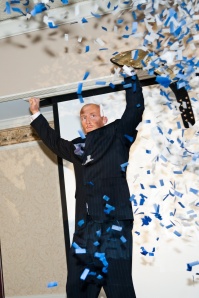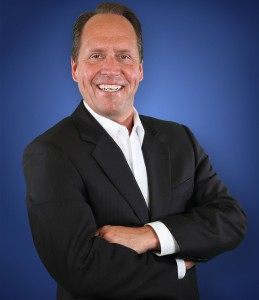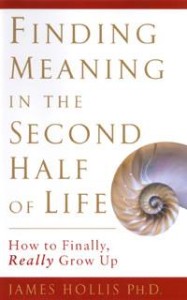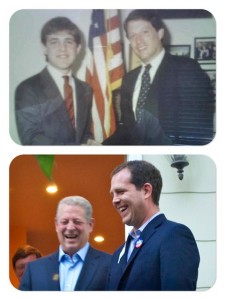|
But I’m nowhere near done
Just kickin’ it Old School
Revving up for my next run
I got nothing to lose
And I got nothing to prove
Done paid up all of my dues
And rock these comfortable shoes
Fighting gravity and time
As I’m bustin’ my rhymes
Got no awareness of shame
And still got slow motion game
Don’t write me off yet
‘Cause I’m just turning it on
Even crankin’ up the volume
Since my hearing’s half gone
Don’t push me out
‘Cause I’m still “all in”
And still got it going on
If I’m in bed by ten
So remember these words
And take them to heart
Young Guns and Young Turks
Show respect for us Old Farts
As you reflect on my rhymes
You’ll find no hate in my rap
Just tryin’ to hang on
Between power naps
This game’s nowhere near over
Young pups stay out of our way
Old dogs may not know new tricks
But we still call the plays
Young haters can hate
And plan to take up our space
Just know you’ll be leasing from us
And we still set the rates
1. “Strive for progress, not perfection” -Unknown 2. “The finish line is just the beginning of a whole new race” -Unknown 3. “Never settle for second when first is available” -Lou Holtz 4. “I’ve missed more than 9,000 shots in my career. I’ve lost almost 300 games. 26 times, I’ve been trusted to take the game winning shot and missed. I’ve failed over and over and over again in my life. And that is why I succeed”-Michael Jordan 5. “Procrastination is the assassination of motivation” -Unknown 6. “Motivation is what gets you started. Habit is what keeps you going” -Jim Rohn 7. “Ability is limitless” -Unknown 8. “To get something you have never had, you have to do something you’ve never done”-Unknown 9. “The difference between a goal and a dream is a deadline” -Steve Smith 10. “Fear nothing, achieve everything” -Josh Bowen 11. “Strength does not come from physical capacity. It comes from an indomitable will” -Mahatma Gandhi 12. “You want me to do something… tell me I can’t do it” -Maya Angelou +1. “Happiness can only exist in acceptance.” -George Orwell Over-reaction is becoming so common on the political scene these days, things have to go pretty far before they qualify as genuinely surprising over-reaction. But the furor over last week’s primary defeat of Eric Cantor definitely qualifies. To put it in perspective, Cantor lost by 36,000 votes, which is about 5% of his voting-eligible constituents, which is about .002% of the 150 million eligible voters in the country. But that didn’t stop pundits from gasping in shock and declaring that this was a political game-changer, with miscalculation like “Dewey Defeats Truman” combined with “Real Housewives”-style national fascination. (Not to mention the fun of seeing Cantor’s opponent, an economics professor who advocates something called “Christian Capitalism,” unable to answer basic questions about the minimum wage . . . but I digress.) This one low-turnout race has apparently led to everything from a resurgence of the Tea Party to the end of any hope for immigration reform to the realization that Democrats should just give up on 2014 unless turnout is boosted by major hurricanes in November that have female names (which apparently are viewed as less scary, so people don’t evacuate as quickly). Hello, people – it’s only one tiny district! On the other hand, there is a Through-The-Looking-Glass surreal quality about one of the most obstructionist right-wing Majority Leaders in history losing a primary for being too liberal. So who knows, maybe the over-reactors are on to something . . .
Wait. Too much. Dial it back. Sometimes I get so excited to tell the similar tales of endearment and struggle I was raised on by my (founding) father(s) that I get too ahead of myself. I also remember that although we share the foundation of struggle, our stories and generation gaps, so to speak, fill the holes. They pave a way of evolution for the tykes that come next. That in spite of our differences, we share the same principles. We raise and are raised to fight. We fight to make this world a better place. That said, I can only speak to unemployment in this day in age, and that is what I’ve been. Unemployed. You feel like a bright, eager, talented, little twerp. You feel so passionately about pouring yourself into your career and being the best and the most. You feel so much feeling that when the checks stop, the spirit leaves you. You hate the phrase, “The glass is half full” because you are drained by being a drain of resources, knowing you can be a source that recharges the economic battery. Wanting to do that. Feeling that. Lots and lots of feeling in our generation… And sharing. Pouring it out in public, looking for dignification. I have been one of the lucky ones. I posted an article here on The Recovering Politician about my laments of being unemployed, and within ten minutes, I had multiple responses. People reaching out to help. People reaching out to learn how they could help. People as conduits. People offering to learn more about me in an effort to hire me directly. People that had known of my struggle, but when pen came to paper and a Word document met a blog, felt too, the existence of empathy – generational gaps and all. That article was my own personal white flag. I thought that before I had done so, I had reached my bottom. It wasn’t until I wrote those words and exposed my feelings that I truly felt like it was time to make the climb. It was then I realized I didn’t have to climb alone – up the hill, both ways, in the snow, shark-infested waters…yadda, yadda, yadda. It was time that I changed “feeling” into acting. As soon as I acknowledged I needed help in the most public and Gen-Y way possible, my digital smoke signals got picked up by the captain of a major vessle. I am so pleased to announce that I am no longer unemployed – and haven’t been for some time. Two weeks after I posted the first article, I sat down to have simple, genuine dialogue that would pave the way for a brand new journey. Walking hand-in-hand with the most surprising of mentors in the most serendipitous of circumstances. My Old Definition: Mad Woman Among the Mad Men. Advertising Agency World left me cold, bitter, ill-adjusted, unrefined, crass.
I have been taken under a wing of a strong, female mentor. As much as I have been taken under a wing, I am also being taken very seriously. I have a full glass if I choose to partake. I also have the responsibility of filling the cup. I plan that, the time I spent wallowing and feeling pitiful about how eager and passionate I am, that I am overdue to have this cup runneth over. For myself – for the company I am proud to be an ambassador of – and – for the people willing to take a chance on me when I was sailing uncharted, scary waters. I think big. I dream big. I fill my heart and my hopes with nothing but…big. I am the quintessential millenial with big hopes and big dreams. I would be kidding if I tried to state anything less. So, as one chapter closes, another one opens. Thus is the beauty of life. I said in closing of my last article: “Career, life and love are like great bourbon. They’re fun when they’re young, but there’s something sweet and powerful when they get a little age on ‘em.” “Oh, and they’re more of a commodity too. Because they’ve grown to become something very special. The days of boxed wine and cheap seats are over for this gal. At least that’s the metaphor. I will be drinking boxed wine and looking on from the nosebleeds until I find a job that soothes the pockets…and then lines them….” Well, folks? Career seems to be shaping up to be beautiful medley of foundation, confidence and passion, coupled with the good old fashioned molding from those who take a special interest in raw, unpolished, mouthy pieces of (art)work. Boy, she’s got her hands full. Pat her on the back when you see her, will you? **** I close with the same phrase as before, with subtle differences: “Love? I assume that may be next. Life? Well that’s what I’ve had all along. I won’t be waiting for wrinkles to become special. This is one thing I’m confident of; a sweet gift I do have in my half-empty pocket that is sure to surprise.” UPDATE: Here’s to lining pockets, wrinkles in time – not on faces; faces that smile, smiles that ignite. Here’s to a remix to ignition, a new definition, and yes, if anyone asks? We DID start the fire. Here’s to fires that burn so brightly you can see them from space. Here’s to opportunity, whether it be from failure, honesty, success, or flat-out digital SOS smoke signals. Here’s to sweet, simple, serendipitous moments and the spirit for life that can manifest again and burn so brightly – for a little twerp like me – ready to take things on with vigor. We have a new captain, a charted course…and we are full steam ahead. That’s so stinking cool. Oh, life…aren’t you full of stories. You wanker, you.
=== I don’t like admitting this but sometimes I worry that I haven’t downloaded the right apps to make it in this life. === My attempted contribution to emotional intelligence (paraphrasing Aristotle). === If you are moving so fast and taking on so much that when you “relax” you don’t really relax but merely reflect briefly on moments in your life a long time ago when you were able to relax, your life hasn’t gotten too busy.
Stage 1. Form Individual behavior is typically driven by a desire to be accepted by others and avoid controversy or conflict. Individuals gather information and make initial impressions about each other. The form stage is important as team members have a chance to get to know each other, exchange personal information and establish relationships. Stage 2. Storm Most teams will eventually encounter conflict where personal agendas are revealed and interpersonal hostility is generated. If successfully managed, this period of storming leads to a new and more realistic setting of objectives, procedures and norms. The storm stage is necessary to the growth of the team. It can be contentious, unpleasant and even painful to members of the team who are averse to conflict. Tolerance of each team member and the appreciation of differences should be encouraged. Stage 3. Norm At this stage, team norms, common practices, policies and procedures start to emerge. How decisions are made, the degree of openness, trust and confidence is established. Team commitment builds during this key transitional stage. Stage 4. Perform Only when the three previous stages have been successfully completed will the team be able to achieve true peak performance. Even the most high-performing teams can and do revert back to earlier stages in certain circumstances (new leadership, introduction and/or exodus of team members, crisis situations, frequent change). One of my favorite movies is Hoosiers starring Gene Hackman as Norman Dale who arrives in the rural southwest Indiana town of Hickory to become a high school teacher and head basketball coach. This movie is not only a classic; it’s a wonderful illustration of Form, Storm, Norm & Perform. For example: Form: At his first practice, Coach Norman Dale immediately dismisses the interim coach. And minutes into addressing the players, he dismisses two players for not paying attention when he speaks. He then begins drilling the remaining five players with the fundamentals and the need for conditioning. True to the Form stage, Coach Dale is direct, establishes the ground rules and let’s the team know who’s in control. Storm: Locals from the town of Hickory intrude on a team practice and demand to know what the Coach is doing. Norman Dale remains steadfast when one of his star players disobeys him and shoots without passing, benching him and playing with only four players after another fouls out. The coach alienates the community with a slow, defensive style. By the middle of the season, an emergency town meeting is called to vote on whether Coach Dale should be dismissed. Intuitively and courageously, Coach Dales realizes he can’t take his team to the next level without going through the Storm stage. Norm: Ultimately, the town of Hickory unanimously decides Coach Dale stays as coach. Players start to listen to Coach Dale, understanding, appreciating and trusting him and his coaching abilities. Perform: Hickory becomes an unstoppable team and shocks the state by reaching the championship game and taking home the 1952 Indiana state championship. I’m reminded of this year’s University of Kentucky Wildcat basketball team as recent illustration of Form, Storm, Norm, Perform. The Wildcats Formed, Stormed and stayed in Storm perhaps longer than most had wanted or envisioned. In fact, they may have skipped Norm all together going straight to Perform during the SEC Tournament and throughout the NCAA tournament, darn near winning the National Title! Closer to home, what can be said about our Legislative Sessions? Do they go through the predictable stages of Form, Storm, Norm & Perform? Should they? Could they? Maybe here’s what it could look like: Form (First 15 days of a 60 day Session): Legislative Session starts after a long winter break with welcomed orientations, leadership elections, committee assignments, new members/staffs arriving, etc.…. Storm (Second Quarter): Heated, but civil debates about issues facing the Commonwealth occur and legislation introduced that solves problems and moves our state forward. And like Reagan and Tip O’Neil after their Storming, we too respect each other, have a coke upon adjournment and remain friends! Norm (Third Quarter): Compromise takes hold. Working together to iron out differences becomes the norm. We’re starting to catch our stride! Perform (Last 15 days): Legislation passes through both Houses in a timely and respectful manner. The Conference Committee process runs smoothly. Partnerships have emerged. Kentucky moves forward in a big way. Session ends on a high note! Perhaps the greatest value of this model is simply knowing where we are, where we need to go and the potential we have in achieving true peak performance for the Commonwealth.
Greg Coker is the director of organization development for Capital Link Consultants. He is the author of “Building Cathedrals: The Power of Purpose” and travels the country delivering keynote speeches and conducting workshops based on the principles of leadership, employee engagement, culture and purpose, the focal point of his book. His upcoming book, “Moving the Needle: Activating the 55% and Saving the 19%” is scheduled for release in 2014. From St. Louis Public Radio:
Finding Meaning in the Second Half of Life by James Hollis. As Paris Hilton would say, “That’s hot!” Yeah, I know. When we met I never really saw a book like this as a future gift we could enjoy together. But check out the intro:
If you are in middle life, that is pretty hot–in its own way! Paris Hilton notwithstanding. The problem with taking the high road is that it never feels like a shortcut–and it isn’t supposed to. But if you are running late and in a hurry or bad with directions and get lost easily, it is tempting to avoid the high road and take the low road instead. But it’s always best to take the high road anyway. It’s the right thing to do and sometimes even faster. The low road only seems faster –but rarely is. And the traffic is always horrendous because so many others assume its the fastest route. === Thought for the day… It’s almost May and has been muggy hot for the last week yet it snowed last night. And you worry about seeming weird or inconsistent to other people? Get over yourself. It’s just the way things are. ===
Usage: “D*mn, that coconut soup is the illist.” Just remember the next time you want to sound younger and cooler than you really are …that you will never be too old to humiliate yourself.
From yesterday’s Politico:
Anyone know a good copyright infringment attorney? UPDATE: It turns out Gore has been using this line a lot — even as early as 2002, 9 years before I started this Web site. From National Journal:
|
| ||
| Copyright © 2026 The Recovering Politician - All Rights Reserved | |||






 It is the middle of the week and this is when the weekend distractions start to hit. Use the following quotes from my book
It is the middle of the week and this is when the weekend distractions start to hit. Use the following quotes from my book 








